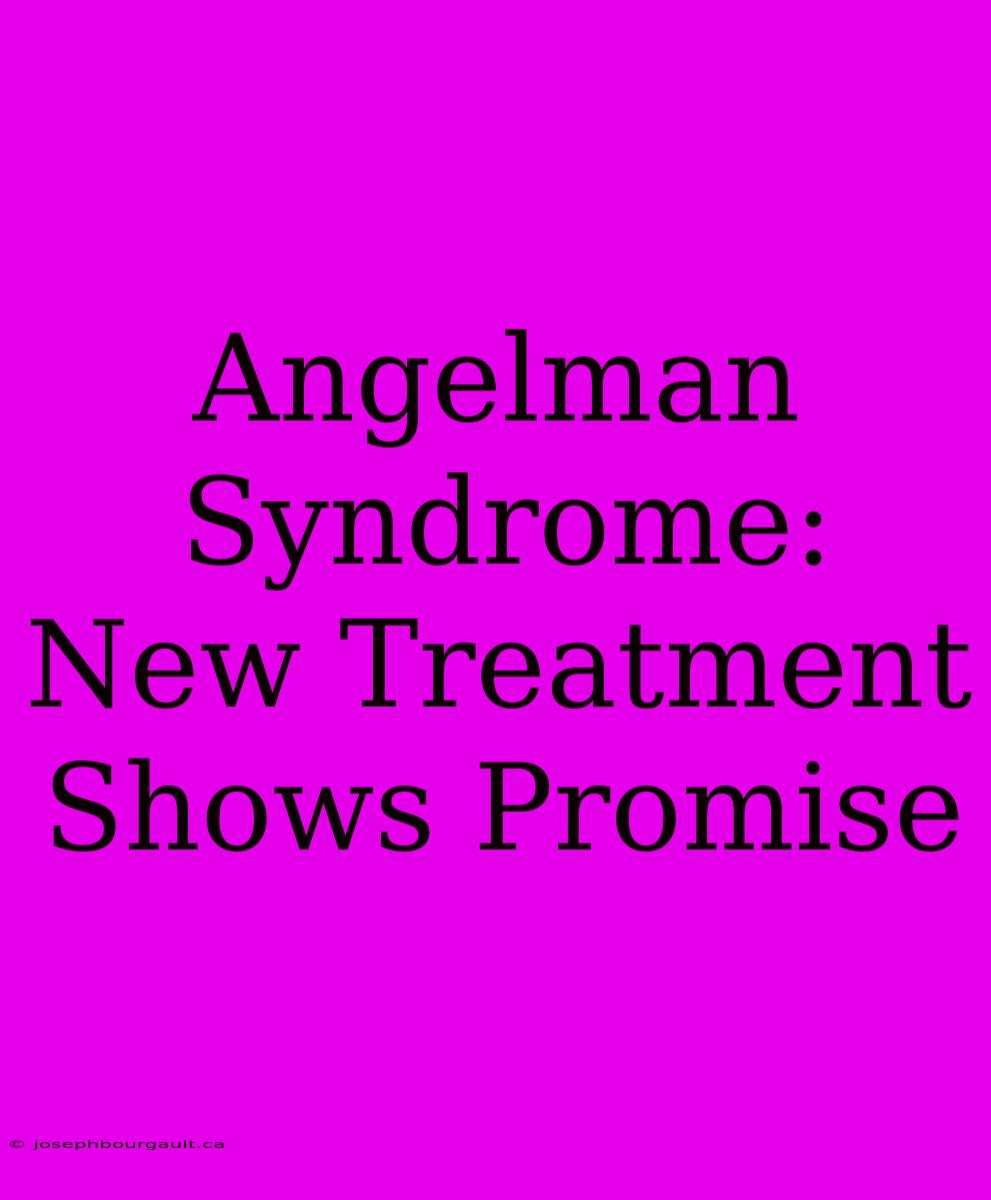Angelman Syndrome: New Treatment Shows Promise
Angelman Syndrome (AS) is a rare genetic disorder that affects the nervous system, causing developmental delays, intellectual disability, speech impairment, and a characteristic happy demeanor. While there is currently no cure for AS, recent research has brought a glimmer of hope with a new treatment showing promising results.
Understanding Angelman Syndrome
AS is caused by a deletion or mutation of a gene called UBE3A on chromosome 15. This gene is responsible for producing a protein essential for brain development and function. Individuals with AS typically exhibit a range of symptoms, including:
- Severe intellectual disability: This often makes learning and communication challenging.
- Delayed development: Children with AS may reach milestones like sitting, crawling, and walking later than their peers.
- Speech impairment: Many individuals with AS have limited or no spoken language.
- Characteristic happy demeanor: Despite their challenges, individuals with AS are known for their happy disposition and infectious laughter.
- Seizures: Epilepsy is common in people with AS.
- Atypical gait: Walking can be unsteady and jerky.
- Sleep disturbances: Individuals with AS may have difficulty sleeping.
The Promise of a New Treatment: UBE3A Gene Therapy
The recent breakthrough in AS treatment lies in gene therapy. Gene therapy aims to replace or repair defective genes to treat genetic disorders. In the case of AS, scientists are targeting the UBE3A gene.
Early trials have demonstrated promising results:
- A small clinical trial conducted in 2022 showed significant improvements in language and cognitive skills in children with AS.
- The treatment involved a one-time injection of a virus carrying a functional copy of the UBE3A gene.
- This therapy aims to deliver the missing or faulty gene directly to the brain, stimulating the production of the crucial protein.
What Does This Mean for Individuals with AS?
While the research is still in its early stages, these findings offer hope for a brighter future for individuals with AS.
This gene therapy could potentially lead to:
- Improved communication and cognitive skills: This would allow individuals with AS to better express themselves and engage in learning.
- Enhanced independence: Greater cognitive abilities could lead to increased independence and participation in everyday activities.
- Improved quality of life: By mitigating the impact of the disorder, individuals with AS could enjoy a more fulfilling and productive life.
It is important to note that the research is ongoing, and the long-term effects of this gene therapy are still under investigation.
Looking Ahead
The development of gene therapy for AS is a major step forward in the fight against this debilitating disorder.
Ongoing research and clinical trials will be essential to determine the safety, efficacy, and long-term benefits of this promising treatment.
Further research is also focusing on alternative therapies, including medication and behavioral interventions, to support individuals with AS.
With continued efforts, we can hope to see a future where individuals with AS have access to effective treatments that enhance their quality of life and empower them to reach their full potential.

